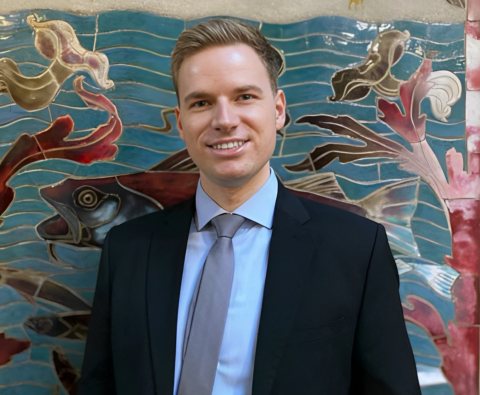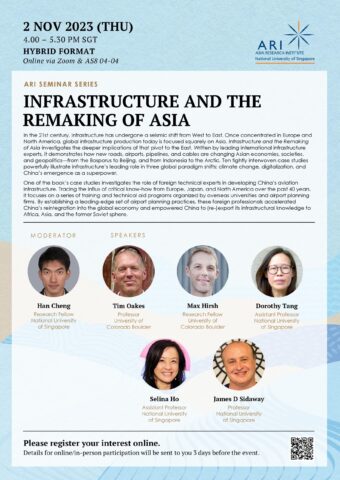Veranstaltungen und Aktivitäten
Online Study Group on Japanese Female Doctors in the Meiji Era

This online presentation offers a novel perspective on the historical study of education in Japan by focusing on Japanese female medical students in Germany. It will examine the educational experience of two pioneer females, Dr. Urata Tada (1873-1936) and Dr. Fukui Shigeko (1874-1961) who received their MD degrees from Marburg University. Upon returning to Japan, Urata became dean of Dōjin Hospital in Tianjin, China, and Fukui worked as an obstetrician and gynecologist at the Osaka Ogata Hospital. Urata and Fukui achieved a breakthrough in the status of female doctors in the Japanese medical profession. This presentation will argue for their roles in facilitating the dissemination of knowledge during Japan’s modernization in medical areas. Importantly, it offers insights into the reform of Japanese female higher education in modern Japan. Details and registration here
Wen-Wei Lan, Ludwig-Maximilians-Universität (LMU Munich)
Hybrid Study Group on Traffic Accident Disputes in Japan

Compared to other industrialized nations, the litigation rate for traffic accident disputes in Japan is remarkably low, leading to the widespread belief that the Japanese tend to avoid taking legal action. This has sparked a debate about the ‘legal consciousness’ in Japanese society. Julien Schickling will present research findings from expert interviews conducted with judges, lawyers, insurance companies, and dispute resolution institutions to shed light on the system for resolving traffic accident disputes in Japan. In addition, he will analyze the rise in litigation rates for traffic accident disputes in Japan observed since the early 2000s, with the aim of providing comprehensive reasons for this shift. Details and registration here
Hybrid DIJ Forum on Women in Japanese Politics

Japanese politics has a woman problem. Not only are women relatively absent from legislative assemblies; when they run for elections, and even after they’ve won, they are often faced with sexual harassment. These issues seem particularly acute in local level assemblies, and even more so in rural areas. In Japan, 15.6% of local assembly seats are occupied by women, and only 2 of the 47 governors are women. This is in spite of the enactment in 2018 of a gender parity law, the Act on Promotion of Gender Equality in the Political Field. The speakers in this DIJ Forum will explore the causes of women’s under-representation in local politics and highlight the sexism experienced by women who campaign for and get elected to office. By considering institutional and cultural barriers, they will present a big-picture analysis of the problem of male-dominated politics in Japan. Details and registration here
Emma Dalton, La Trobe University
Naoko Oki, Sugiyama Jogakuen University
Online Study Group on Religion in Japan’s Cultural Heritage Campaign

As part of the nationwide campaign „Japan Cultural Heritage“, the religious tradition Shugendō has been listed as cultural heritage by the Japanese Agency for Cultural Affairs. Ever since, this label has been used to promote the tourist marketing of one of the main areas of Shugendō practice in Wakayama. Practicing groups across the country are also gathering in digital social networks, creating new structures and collaborating with international groups practicing outside of Japan. Shugendō is thereby involved in debates about the environment and sustainability, national identity and, of course, cultural heritage. This lecture explores how practitioners of this religious tradition and external sectors are related to each other and how religion influences socioeconomics and the imagination of „culture“. Latest field research by the speaker provides insights into the cultural heritage campaign and the role Shugendō plays regarding the Expo 2025 in Osaka. Details and registration here
Josko Kozic, Heidelberg University/DIJ Tokyo
Online DIJ Study Group on Japan’s Economic Security Policy
 Germany, which has become accustomed to cheap gas from Russia, easy market access to China and peace and stability in Europe, has experienced a rude awakening. One of the most urgent tasks now is to ensure economic security. However, it is not the USA but Japan with its advanced system of economic security that seems to be the more appropriate role model. After all, Japan’s strong industrial production base, its export orientation and its positioning between economic dependence on China and security dependence on the USA are very similar to Germany’s situation. Against this background, the question arises as to which characteristics make the Japanese system of economic security so attractive from a German perspective? And how does Japan deal with the uncertainties, dilemmas and risks that state intervention in economic decision-making processes inevitably entails? Details and registration here
Germany, which has become accustomed to cheap gas from Russia, easy market access to China and peace and stability in Europe, has experienced a rude awakening. One of the most urgent tasks now is to ensure economic security. However, it is not the USA but Japan with its advanced system of economic security that seems to be the more appropriate role model. After all, Japan’s strong industrial production base, its export orientation and its positioning between economic dependence on China and security dependence on the USA are very similar to Germany’s situation. Against this background, the question arises as to which characteristics make the Japanese system of economic security so attractive from a German perspective? And how does Japan deal with the uncertainties, dilemmas and risks that state intervention in economic decision-making processes inevitably entails? Details and registration here
Hanns Günther Hilpert, German Institute for International and Security Affairs
Hybrid DIJ Study Group on National Identity Discourses in Japan

The Rugby World Cup held in Japan in 2019 was an intriguing example of a large-scale international sporting event that triggered national identity discourses. A multi-ethnic team which represented Japan with outstanding success, Japan’s national rugby team’s journey through the tournament was broadly covered in the media and the team was cheered on by fans across the country. Yet, the myth of mono-ethnicity still resonates with some segments in Japanese society. The resulting tension is brought into focus by intensive media reporting and can ultimately lead to a process of redefining a nation-state’s self-perception. This presentation will discuss the tensions between the assumed mono-ethnicity and the reality of a changing society. How does this discourse of national belonging in Japan take place? What is considered diverse in Japan and where do national and international reporting clash regarding Japanese national identity? Details and registration here
Jane Khanizadeh, LMU Munich/DIJ Tokyo
Isaac Gagné and Celia Spoden to give research presentations at the AAA Conference

DIJ researchers Isaac Gagné and Celia Spoden will attend this year’s annual meeting of the American Anthropological Association (AAA) in Toronto to present their latest research. Both will give presentations in the panel „Beyond ‚Lonely Death‘: Communication and Engagement in Japan’s Aging Society“ on November 17. Drawing from fieldwork in a hamlet in Nagano and the displaced district of Yuriage in Miyagi, Isaac’s paper („Social Welfare of and for the Community: Neighborhoods, Networks, and Volunteerism in Aging Japan“) will discuss the roles of community-based social welfare services in aging suburban and rural communities. In her paper („Cyber-Physical Spaces in Japan: Social Inclusion of People with Disabilities Through Avatar-Work“), Celia will present her fieldwork in an avatar café, where home-bound people remotely control robots and serve the guests. Drawing on interviews with the avatar pilots, she will explore their perception of social participation, work, and disability.
Hybrid Seminar ‚Infrastructure and the Remaking of Asia‘

In the 21st century, infrastructure has undergone a seismic shift from West to East. Once concentrated in Europe and North America, global infrastructure production today is focused squarely on Asia. This hybrid seminar will introduce the open access book Infrastructure and the Remaking of Asia (University of Hawai’i Press 2023) which investigates the deeper implications of that pivot to the East. Written by leading international infrastructure experts, it demonstrates how new roads, airports, pipelines, and cables are changing Asian economies, societies, and geopolitics—from the Bosporus to Beijing, and from Indonesia to the Arctic. Ten tightly interwoven case studies powerfully illustrate infrastructure’s leading role in three global paradigm shifts: climate change, digitalization, and China’s emergence as a superpower. This event is part of the DIJ’s research partnership on Asian Infrastructures with the Asia Research Institute (ARI) at the National University of Singapore. Details and registration here

















 Open Access
Open Access 
